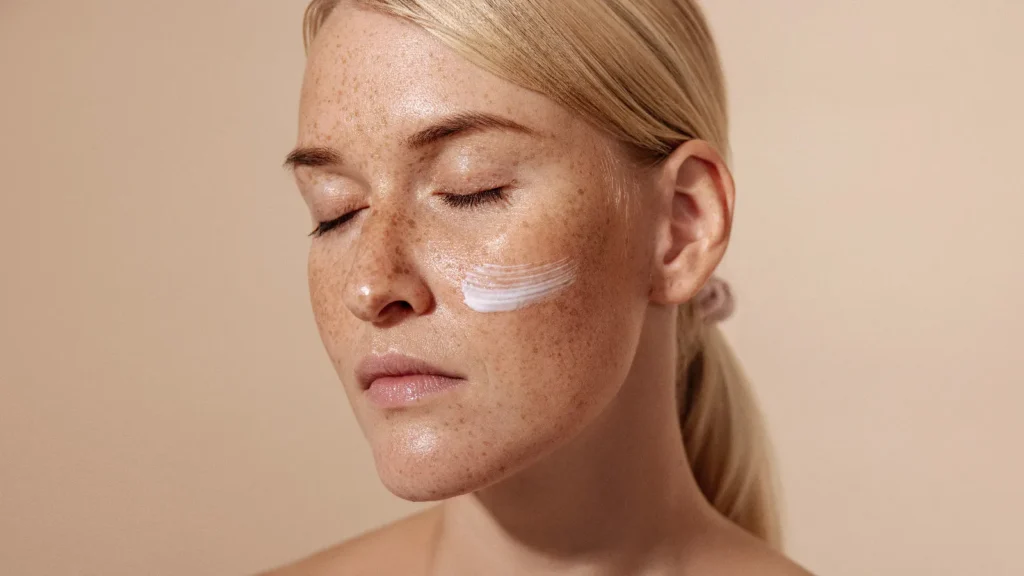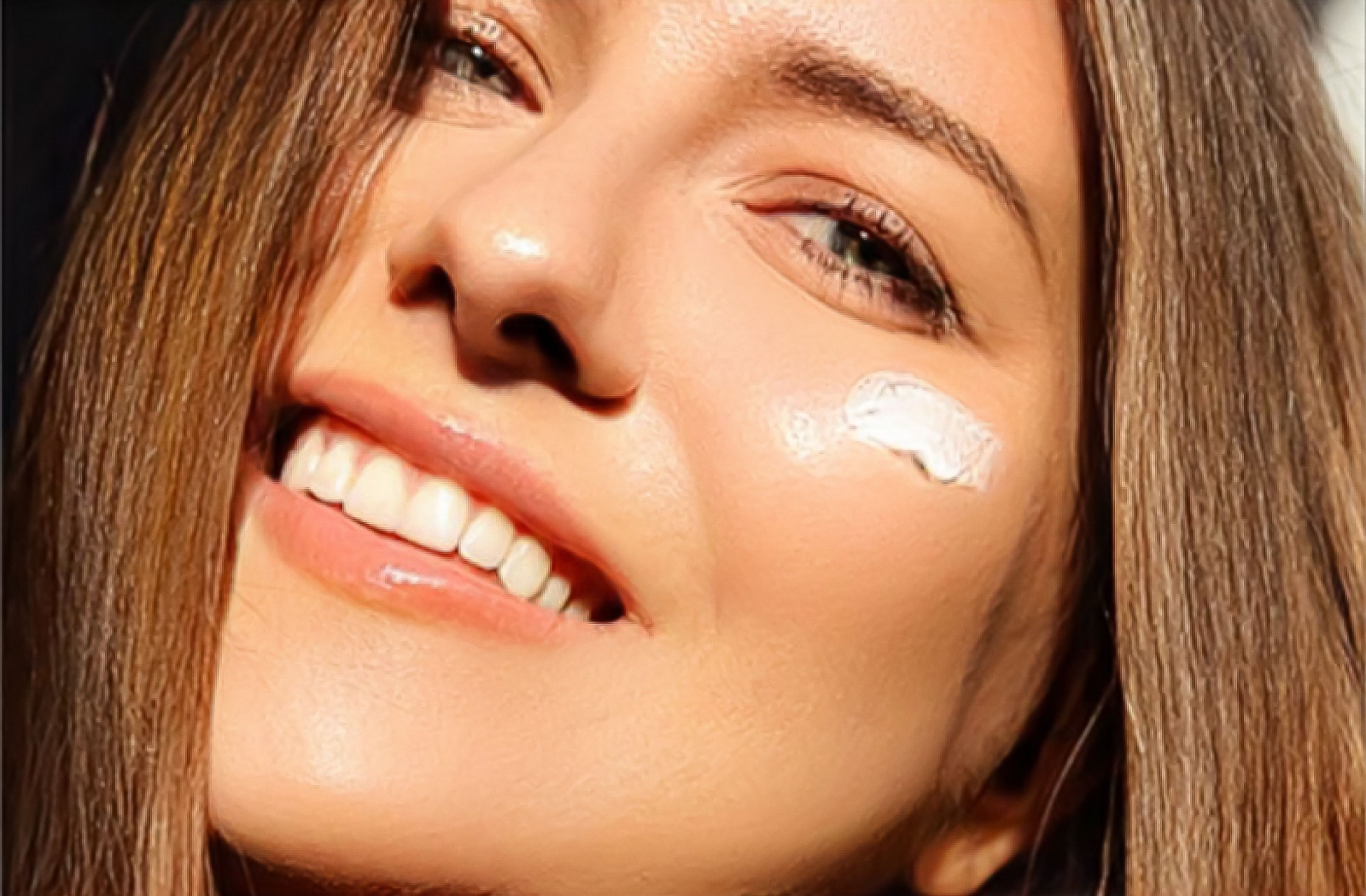Have you been struggling to find the perfect SPF cream for your face? With so many options on the market, it can be overwhelming trying to decide which one is best for you. But don’t panic, I’ve got you covered! As someone who has spent years researching and experimenting with different products, I know just how important it is to find the right SPF cream for your skin.
In this article, we’ll go through everything you need to know about choosing the best SPF cream for your face. From understanding what SPF actually means and why it’s essential for daily skincare, to breaking down different types of sunscreens and their benefits. We’ll also discuss common misconceptions about using facial sunscreen and provide recommendations based on various skin types.
By the end of this guide, you will have all the knowledge necessary to confidently choose an SPF cream that works best for your unique skin needs. No more second-guessing or wasting money on ineffective products – let’s get started on finding your perfect match!
So, spf cream for face?
When it comes to skincare, one of the most important steps is protecting your skin from harmful UV rays. And while we all know that sunscreen is a must, choosing the right SPF cream for your face can be overwhelming. With so many options on the market, how do you know which one is best for you?
First and foremost, it’s important to understand what SPF actually means. SPF stands for Sun Protection Factor and refers to the level of protection a product provides against UVB rays, which are responsible for sunburns. The higher the number, the longer you can stay in the sun without getting burned.
But when it comes to choosing an SPF cream specifically for your face, there are a few key factors to consider:
1. Skin Type: Just like with any other skincare product, it’s crucial to choose an SPF cream that caters to your specific skin type. If you have oily skin, look for oil-free or mattifying formulas that won’t clog pores or leave behind a greasy residue. For dry skin types, opt for moisturizing creams with added hydrating ingredients like hyaluronic acid.
2. Coverage: Some SPFs provide more coverage than others – meaning they not only protect against UVB rays but also UVA rays (which cause premature aging). Look for broad-spectrum protection on labels and aim for at least an SPF 30.
3. Ingredients:It’s always important to read ingredient lists carefully before purchasing any skincare product – especially if you have sensitive skin or allergies. Avoid any potential irritants like fragrances or dyes and opt instead for natural ingredients like zinc oxide or titanium dioxide.
4. Application: How easy is it to apply? Is it lightweight enough to wear under makeup? These are all things worth considering when choosing an SPF cream as you want something that will fit seamlessly into your daily routine.
5 . Price Point: While investing in quality skincare is important, it’s also essential to find a product that fits within your budget. Luckily, there are plenty of affordable options on the market that still offer great protection.
Ultimately, finding the best SPF cream for your face will require some trial and error. But by considering these key factors and doing some research on different products, you can ensure that you’re choosing one that not only protects your skin but also works well with your specific needs and preferences. Remember to always wear sunscreen daily – even when it’s cloudy – to keep your skin healthy and youthful in the long run.
Understanding SPF: What It Means and Why It’s Crucial
When it comes to protecting your skin from the sun’s harsh rays, understanding SPF is key. SPF stands for Sun Protection Factor, a measure that indicates how well a sunscreen can protect your skin from UVB rays, which are the primary cause of sunburn and can contribute to skin cancer. For example, if you use a sunscreen with an SPF of 30, it means you can stay in the sun 30 times longer without getting burnt than if you were wearing no protection at all. This doesn’t mean you’re completely safe; even high-SPF products need to be reapplied every couple of hours and after swimming or sweating.
Additionally, it’s important to consider how much sunscreen you’re using. Many people apply too little—about half what they should—leading to less effective protection. To ensure maximum benefit, applying about an ounce (or enough to fill a shot glass) is ideal for full body coverage. You should also look for broad-spectrum formulas that guard against both UVB and UVA rays since both types can harm your skin in different ways. Remember too that wearing protective clothing and seeking shade are great complements to using sunscreen! By being informed about SPF, you empower yourself to enjoy the outdoors while keeping your skin healthy and safe.

Breaking Down Different Types of Sunscreens: Chemical VS Physical
When choosing sunscreen, it’s essential to understand the two main types: chemical and physical. Chemical sunscreens absorb harmful UV rays through their lightweight formulas, which often contain ingredients like avobenzone or octisalate. These components transform UV rays into heat, then release them from the skin. While many appreciate how effortlessly these products blend in without leaving a white residue, they can sometimes provoke skin sensitivities for those with reactive skin or allergies.
On the other hand, physical sunscreens, also known as mineral sunscreens, use natural minerals like zinc oxide or titanium dioxide to create a protective barrier on top of your skin. This type sits on the surface and deflects harmful rays away from your body. Many people prefer physical formulations for their gentle nature; they’re less likely to irritate sensitive complexions and provide immediate protection upon application. When selecting between these options, consider factors such as your activity level—chemical types may be better suited for sports due to their lightweight feel—and any personal preferences regarding ingredients or textures that may affect the overall experience of sun safety.
Read also: texas beauty company
Debunking Common Misconceptions About Using Facial Sunscreen
Many people believe that wearing sunscreen is only necessary on sunny days or when swimming at the beach. However, this misconception overlooks the fact that harmful UV rays can penetrate clouds and reflect off surfaces like water, sand, or even pavement. Even on overcast days, up to 80% of these rays still reach your skin. Daily application of facial sunscreen helps protect against skin damage that can lead to premature aging or more serious conditions like skin cancer. It’s not just about a fun day in the sun; it’s about caring for your skin every day.
Another myth is that darker skin tones don’t need sunscreen as they are less susceptible to sunburns. While it’s true that melanin offers some natural protection, it doesn’t mean darker complexions are immune to UV damage. Skin cancer can affect anyone regardless of their color; thus, applying broad-spectrum SPF is essential for everyone. To maximize benefits from facial sunscreens:
- Choose a product labeled “broad-spectrum.”
- Look for a minimum SPF of 30.
- Reapply every two hours or after sweating.
Embracing daily sunscreen use ensures both healthy and radiant skin throughout all seasons!
Tailoring Your SPF Cream Selection Based on Your Skin Type: Oily, Dry, Sensitive or Combination
Choosing the right SPF cream is essential, especially since our skin can be quite different from one another. For those with oily skin, it’s vital to look for lightweight, oil-free formulations that won’t clog pores. Gel-based sunscreens are often great options as they absorb quickly and provide a matte finish. This helps prevent excess shine while still offering vital protection against harmful UV rays.
On the other hand, if your skin tends to feel parched, opt for creams that contain hydrating ingredients like hyaluronic acid or glycerin. These will offer moisture without sacrificing sun protection.
When dealing with sensitive skin, finding a gentle formula is key. Look for mineral-based sunscreens containing zinc oxide or titanium dioxide; these create a physical barrier against the sun and are less likely to irritate delicate complexions. It’s best to avoid fragrances and harsh chemicals in these products.
For those blessed with combination skin, balance becomes important. A broad-spectrum sunscreen that hydrates dry patches while controlling oiliness in others works well here. Consider choosing lotions that have added antioxidants; these not only protect against UV damage but also combat environmental stressors—keeping your complexion vibrant and healthy!
You may also like: perioral dermatitis manuka honey
Making the Right SPF Face Cream Choice for Your Skincare Routine
Choosing the right SPF face cream is essential for maintaining healthy skin, especially with the sun’s powerful rays lurking around. A good sunscreen not only protects against harmful UV radiation but also complements your skincare routine beautifully. When selecting an SPF face cream, consider factors like your skin type, its texture, and any specific concerns you might have, such as acne or dryness. For example, if you have oily or combination skin, look for lightweight formulas that won’t clog pores. On the other hand, those with dry skin may benefit from richer creams infused with hydrating ingredients to keep their faces moisturized while providing sun protection.
Additionally, it’s important to pay attention to the level of SPF in a product; dermatologists usually recommend at least SPF 30 for daily use. Beyond just numbers on a label though—consider broad-spectrum options that guard against both UVA and UVB rays. Reading through ingredient lists can help identify nourishing additions like antioxidants or vitamins which enhance overall skin health while fighting off environmental stressors. Don’t forget about reapplication! Even water-resistant formulations require touch-ups throughout the day to maintain effective protection and ensure your glow remains radiant all summer long!
